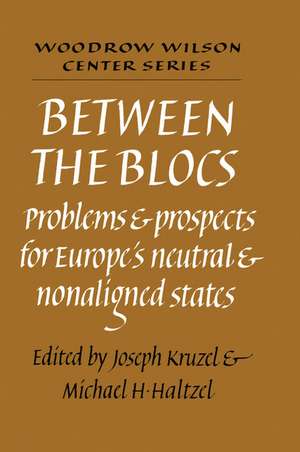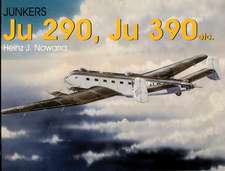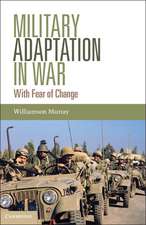Between the Blocs: Problems and Prospects for Europe's Neutral and Nonaligned States: Woodrow Wilson Center Press
Editat de Joseph Kruzel, Michael H. Haltzelen Limba Engleză Hardback – 25 ian 1990
Din seria Woodrow Wilson Center Press
-
 Preț: 288.80 lei
Preț: 288.80 lei -
 Preț: 280.15 lei
Preț: 280.15 lei -
 Preț: 351.33 lei
Preț: 351.33 lei -
 Preț: 284.17 lei
Preț: 284.17 lei -
 Preț: 315.38 lei
Preț: 315.38 lei -
 Preț: 271.22 lei
Preț: 271.22 lei -
 Preț: 274.49 lei
Preț: 274.49 lei -
 Preț: 312.46 lei
Preț: 312.46 lei -
 Preț: 284.01 lei
Preț: 284.01 lei -
 Preț: 273.13 lei
Preț: 273.13 lei -
 Preț: 447.94 lei
Preț: 447.94 lei -
 Preț: 314.39 lei
Preț: 314.39 lei -
 Preț: 358.06 lei
Preț: 358.06 lei - 11%
 Preț: 642.23 lei
Preț: 642.23 lei -
 Preț: 379.72 lei
Preț: 379.72 lei -
 Preț: 263.71 lei
Preț: 263.71 lei -
 Preț: 240.63 lei
Preț: 240.63 lei -
 Preț: 414.44 lei
Preț: 414.44 lei - 11%
 Preț: 448.15 lei
Preț: 448.15 lei -
 Preț: 325.01 lei
Preț: 325.01 lei -
 Preț: 317.64 lei
Preț: 317.64 lei -
 Preț: 369.08 lei
Preț: 369.08 lei - 11%
 Preț: 575.19 lei
Preț: 575.19 lei -
 Preț: 284.39 lei
Preț: 284.39 lei -
 Preț: 371.03 lei
Preț: 371.03 lei -
 Preț: 280.15 lei
Preț: 280.15 lei -
 Preț: 226.68 lei
Preț: 226.68 lei -
 Preț: 315.14 lei
Preț: 315.14 lei -
 Preț: 285.75 lei
Preț: 285.75 lei -
 Preț: 374.85 lei
Preț: 374.85 lei
Preț: 781.19 lei
Preț vechi: 908.36 lei
-14% Nou
Puncte Express: 1172
Preț estimativ în valută:
149.47€ • 156.08$ • 123.43£
149.47€ • 156.08$ • 123.43£
Carte tipărită la comandă
Livrare economică 15-29 aprilie
Preluare comenzi: 021 569.72.76
Specificații
ISBN-13: 9780521375580
ISBN-10: 0521375584
Pagini: 344
Dimensiuni: 152 x 229 x 24 mm
Greutate: 0.59 kg
Ediția:New.
Editura: Cambridge University Press
Colecția Cambridge University Press
Seria Woodrow Wilson Center Press
Locul publicării:New York, United States
ISBN-10: 0521375584
Pagini: 344
Dimensiuni: 152 x 229 x 24 mm
Greutate: 0.59 kg
Ediția:New.
Editura: Cambridge University Press
Colecția Cambridge University Press
Seria Woodrow Wilson Center Press
Locul publicării:New York, United States
Cuprins
Acknowledgments; Introduction Michael H. Haltzel; Part I. Perspectives: 1. Neutral states in historical perspectives Philip Windsor; Commentary Luzius Wildhaber; Commentary Wilhelm Carlgren; 2. Forms of neutrality Sigmund Widmer; 3. The various conceptions of European neutrality Radovan Vukadinovic; Part II. Special Cases: 4. The underlying assumptions of Finnish neutrality Pertti Joenniemi; 5. Neutrality and regional integration: Ireland's experience in the European community Patrick Keatinge; Part III. Interdependence: 6. Challenges to neutrality in an interdependent world Hanspeter Neuhold; 7. National security dilemmas and strategies for the European neutrals Bengt Sundelius; Commentary Raimo Väyrynen; Part IV. Security: 8. The European neutrals, national defense, and international security Joseph Kruzel; 9. Beyond soldiers and arms: the Swiss model of comprehensive security policy Kurt R. Spillmann; 10. Swedish defense: traditions, perceptions, and policies Nils Andrén; 11. Swedish and Finnish defense policies: a comparative study Tomas Ries; Commentary Kari Möttölä; Part V. Public Opinion: 12. The role of public opinion in neutral policy Hans Thalberg; 13. Finnish neutrality and public opinion Krister Ståhlberg; Commentary Sverker Åström; Part VI. Policy Views: 14. Some misconceptions about Austrian neutrality Gerald Hinteregger; 15. Neutrality in the European context: the Finnish perspective Paavo Väyrynen; 16. The Swiss approach Edouard Brunner; 17. The United States and Europe's neutrals Rozanne L. Ridgway; Part VII. Conclusion: 18. The future of European neutrality Joseph Kruzel; About the authors; Index.
Recenzii
"John Foster Dulles is long gone, but still Americans are prone to regard neutrality as, if not a sin, then a nuisance. This volume is a welcome antidote, neither extolling nor dismissing neutrality. Rather, it demonstrates the range of both the forms of, and the challenges to, neutrality. Kruzel's fine conclusion stresses the contrast between neutral realists, who believe quiet voices befit small powers, and neutral idealists, who seek to reshape the international system. This book is all the more valuable as Europe confronts new neutrals from Eastern Europe and new roles for neutrality in the post-Cold War order." Gregory F. Treverton in Foreign Affairs
Descriere
Between the Blocs, published in 1990, examines the phenomenon of Europe's neutral analysis of the phenomenon of Europe's natural and non-aligned states.












